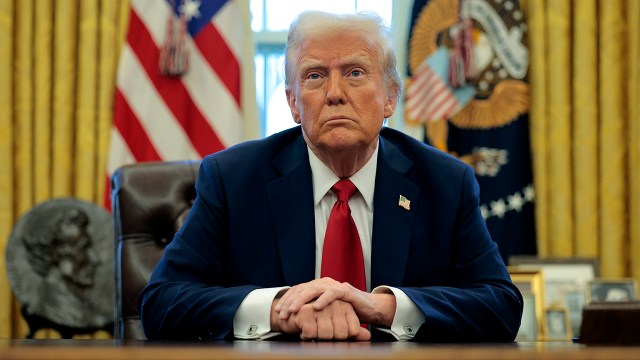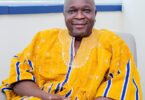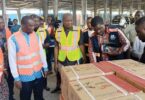Article By: Jackson Okata
In the recent past, the African continent has battled multiple epidemics, including monkeypox, Ebola, and Marburg fever.
There is no doubt that Africa’s healthcare system is shaky, and without international and donor support, it would quickly crumble.
The World Health Organization (WHO) and global health networks continue to play a crucial role in helping African nations establish functional public health systems and, at times, in managing disease outbreaks.
For decades, the United States of America has been among the largest funders of global health networks, including the WHO.
But recent actions by the Trump administration, including his withdrawal from the World Health Organization and suspension of the United States Agency for International Development’s foreign aid projects, will no doubt affect WHO operations in Africa.
Trump’s disruption of the global health systems did not begin today. In 2020, at the tail end of his first term in office, he initiated a move to withdraw the US from the WHO at the height of the COVID-19 pandemic, sending shockwaves through the global health community.
His actions weakened the international pandemic response and dealt a significant blow to African nations, which are among the biggest beneficiaries of WHO-led initiatives, including disease surveillance, vaccine distribution, and emergency response funding.
Outgoing WHO’s Africa Regional Director, Dr Matshidiso Moeti warned at the time that the decision by the US to withdraw from the WHO could not come at a worse moment, especially for vulnerable communities that depend on coordinated international efforts to fight emerging diseases.
Pandemic Mismanagement
Dr. Ahmed Ogwell Ouma, former acting director of the Africa CDC argues that Trump’s mishandling of the COVID-19 pandemic exacerbated global health inequalities by undermining scientific guidance, promoting misinformation, and even politicizing the search for COVID-19’s origins.
As former director of the National Institute of Allergy and Infectious Diseases, Dr. Anthony Fauci said, Trump’s approach of pulling the US back from the WHO and disengaging from multilateral efforts creates dangerous gaps in pandemic preparedness worldwide.
During the COVID-19 pandemic, Africa suffered heavy consequences of America’s withdrawal from the WHO, including delayed vaccine rollout efforts and hampered regional coordination to contain the outbreak.
Dr John Nkengasong, former director of the Africa Centres for Disease Control and Prevention (Africa CDC), says that the fragility of global health cooperation has been laid bare by the U.S. withdrawal from the WHO, with the continent’s ability to contain infectious diseases, which depends on coordinated action, being greatly affected.
By suspending USAID foreign aid projects and slashing crucial funding that had historically supported epidemic preparedness programs, the impact was immediate, with initiatives aimed at strengthening healthcare infrastructure, training local medical personnel, and improving laboratory capabilities thrown into limbo.
Dr Nkengasong aptly puts it that global health security cannot be dictated by nationalistic policies or political whims because epidemics do not respect borders, and Trump’s isolationism only increases the risk of disease spread, making the world more vulnerable as a whole.
Global Responsibility
Among his first actions on return to the Oval Office was to sign an executive order withdrawing the United States from the World Health Organization (WHO).
Under Trump—both during his first term and now in his current leadership—the United States has steadily abdicated its responsibility as a global pillar of international cooperation.
Trump’s isolationist approach has not only weakened America’s pandemic response but has also deeply undermined the global health ecosystem, especially in regions like Africa that rely on partnerships.
Dr Nkengasong warns that Trump’s America-first ideology does not just hurt African countries but also the United States because infectious diseases don’t respect borders.
Africa CDC Director General Dr Jean Kaseya, argues that no country is safe until all countries are safe and that Trump’s disregard for the principle of multilateralism is a betrayal of global public health.
As Dr. Aisha Ndungu, a Kenyan epidemiologist and regional advisor to the African CDC, describes, Trump’s actions as not only negligent but catastrophic for global health equity, critical support, community health workers, and epidemic tracking programs.
And without the international buffer once provided by donor agencies and programs like USAID and PEPFAR, African nations are now scrambling to manage their health systems.
Geo-Politics Vs Global Health
On March 13, 2025, Germany’s Federal Intelligence Service (BND) stated that the COVID-19 pandemic “could well have been triggered by an accident at a Chinese laboratory.”
While framed as a possibility, the statement has rekindled the lab leak theory—a narrative previously propagated by Trump, without evidence, Trump used this theory as a geopolitical tool against China, diverting attention from urgent pandemic needs.
Dr Rose Atieno, a molecular virologist at the University of Nairobi observes that the obsession with the lab leak theory politicized what should have been a unified global scientific investigation into the COVID-19 pandemic.
She argues that while investigating virus origins is important, prematurely assigning blame without transparency or consensus undermines trust in science, and pushing unproven lab escape theories, especially in the absence of peer-reviewed evidence.
Today, the world continues to grapple with the aftershocks of COVID-19 and the erosion of global health cooperation under the Trump presidency, African countries, caught in the crossfire, are still paying the price.
Beyond the Impact
The WHO continues to play a key role in detecting, monitoring, and responding to emerging health threats, pandemics, and diseases of importance.
Across sub-Saharan Africa, health facilities once buoyed by steady aid are staring at shortages of vaccines, medications, and protective equipment with health workers who had been benefiting from USAID-funded programs and initiatives finding themselves in limbo.
Beyond immediate shortages, the broader implications of these policy reversals are beginning to surface with aid unpredictability likely to destabilize long-term planning and investment in health infrastructure.
The effect of this, according to Dr Ouma, will be an undermined surveillance system, delayed outbreak reporting, and ultimately, a compromised capacity to fight epidemics effectively.
A weakened health infrastructure leads to slower outbreak detection, more rapid disease spread, and a higher likelihood of crossing regional borders.
Rebuilding trust will require restoring funding to WHO and USAID, supporting regional institutions like the Africa CDC, and recommitting to science-based diplomacy rather than ideology-driven isolationism. Global health is not charity—it’s mutual security.
No country is safe until every country is safe. Africa’s future of epidemic preparedness now depends on the restoration of not only essential funding but also the trust that reliable, consistent support is a cornerstone of global health security.
Jackson Okata is a multiple award-winning independent multimedia journalist based in Nairobi, Kenya. His works have been published by CNN, The Guardian, Al Jazeera English, Reuters, Dialogue Earth, Mongabay, Openly, Minority Africa, AllAfrica, Inter Press Service (IPS) and RT News
Source: www.thenewindependentonline.com








